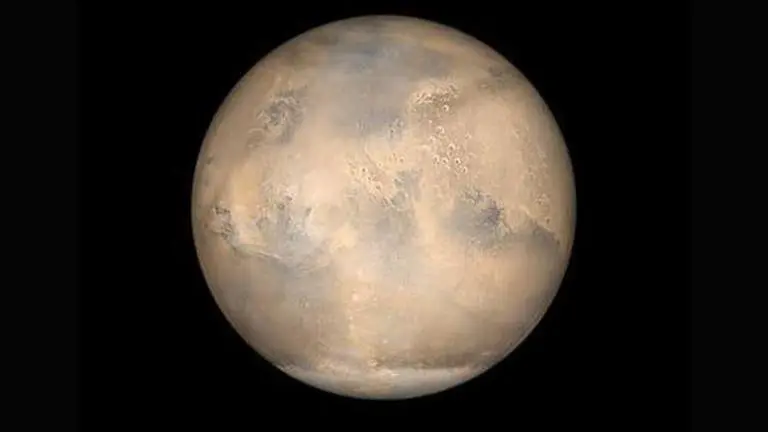Updated 2 February 2022 at 22:53 IST
Mars-bound astronauts can avoid aggression, muscle loss with hibernation during trips
A European Space Agency (ESA) study has suggested that putting astronauts into hibernation could be the best way to ensure their safe trip to Mars
- Science News
- 3 min read

An investigation being conducted by the European Space Agency (ESA) has suggested that putting astronauts into hibernation could be the best way to ensure their safe trip to Mars. Considering how long it takes to reach the red planet, experts working on this experiment say that this method would reduce launch costs, reduce spacecraft size and keep the astronauts healthy throughout their journey. It is a known fact, that humans when awake spend energy that we gain from food. Since a two-way trip to the red planet would take approximately two years, astronauts would need to require packing food and water for the entire journey.
Jennifer Ngo-Anh, ESA research and payload coordinator of Human and Robotic Exploration says as per ESA' report-
We are talking about 30 kg (of supplies) per astronaut per week, and on top of that we need to consider radiation as well as mental and physiological challenges.
These experts say that long-duration exploration can be made more feasible if they cut down the supplies and spacecraft size by reducing the metabolic activities of astronauts by 25%. "Where there is life, there is stress. The strategy would minimize boredom, loneliness and aggression levels linked to the confinement in a spacecraft", Ngo-Anh added.
The human hibernation pod for space exploration
(Hibernation pod concept for astronauts; image: ESA)
Advertisement
To make the idea come to life, ESA has revealed an idea for a soft-shell astronaut hibernation pod which is being suggested by scientists. This pod would be designed to serve as a quiet environment with fine-tuned settings such as low lights, low temperature, less than 10°C, and high humidity. According to the agency, astronauts in this pod would be wearing special clothes to avoid overheating along with sensors for scientists to measure their heart rate, temperature and posture. Interestingly, while the astronauts are asleep, the spacecraft will be controlled by artificial intelligence in case any anomaly or emergency occurs.
Alexander Choukér, professor of Medicine at Munich-based Ludwig Maximilians University said as per ESA, "Besides monitoring power consumption and autonomous operations, the computers onboard will maintain optimal performance of the spacecraft until the crew could be woken up". Besides, astronauts, during their hibernation period, would be protected from the harmful radiations in outer space and their muscles and bone density would be intact. This is significant because the effects of radiations on the Mars-bound crew, that would not be protected by Earth's magnetic field, can cause cell death, radiation sickness and even cancer.
Advertisement
Published By : Harsh Vardhan
Published On: 2 February 2022 at 22:53 IST

